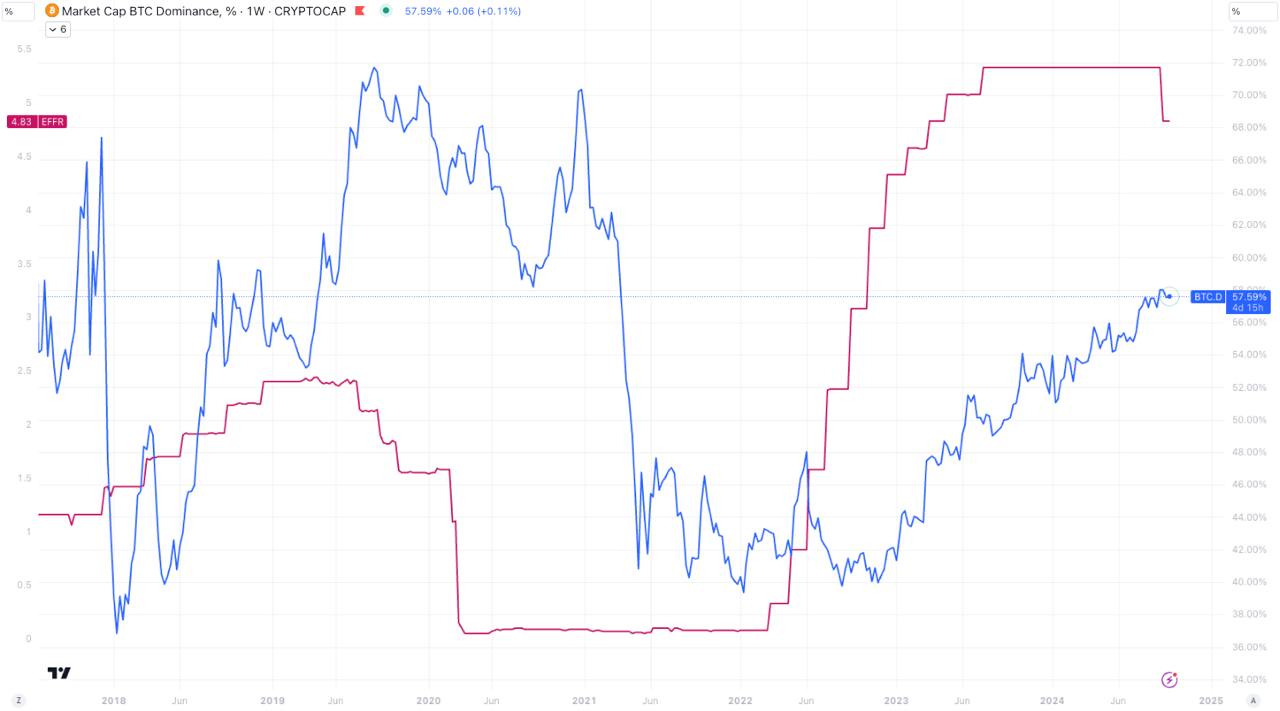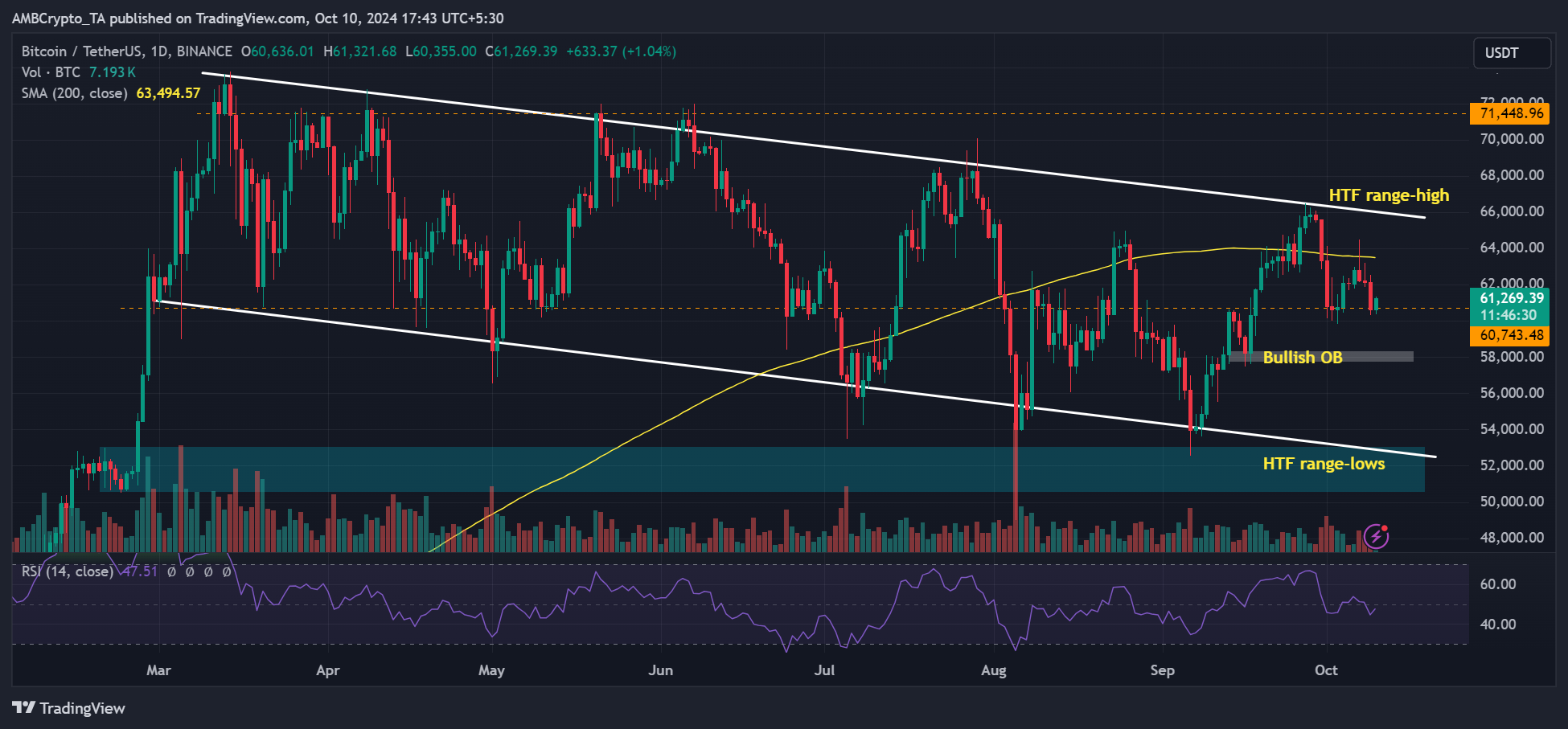- Analysts downplayed the constructive influence of Fed price cuts on Bitcoin.
- Andrew Kang acknowledged that BTC may stay range-bound till a key crypto catalyst emerges.
There’s an general market optimism that Bitcoin [BTC] may explode in This fall 2024, particularly given the continuing U.S. Fed price cuts and China stimulus package deal.
These components have been considered as web constructive for international liquidity and danger property, together with BTC. The aggressive 50 bps Fed price lower in September was deemed because the catalyst for BTC’s rally to $66K.
Contrarian view Fed price cuts
However Andrew Kang, co-founder of crypto funding agency Mechanism Capital, has taken a cautious and contrarian stance.
In keeping with Kang, the influence of the Fed price cuts and China’s coverage may be overstated. He stated,
“I believe crypto market participants as a whole have overstated the impact of fed rate cuts and China stimulus.”
Supply: BTC vs. Fed price cuts, TradingView
Kang argued that Fed charges are simply one of many many components influencing international liquidity. He added that even international liquidity is simply one of many many components influencing crypto costs.
To again his argument, Kang cited BTC’s wild rally since 2023, when Fed charges hiked to file highs.
“It seems nonsensical to see BTC rally 4.5x during a period where rates were going to and at multi-decade highs – showing little correlation between rates and BTC, and then expect a strong inverse correlation to present itself as soon as rates start going down.”
Though he acknowledged Fed charges’ significance, he felt the market overemphasized it.
SwissOne Capital, a crypto-focused asset supervisor, supported the projection.
The agency added that altcoins stand to profit greater than BTC in the course of the Fed price lower cycle, as BTC dominance all the time declines throughout these durations.
“During the previous rate-cutting cycle that began midway through 2019, Bitcoin dominance then fell to 38%.”

Supply: TradingView
China stimulus
Kang additionally claimed China’s stimulus was extra bullish for shares than crypto. He cited current buying and selling reductions between USDT and the Chinese language Yuan (CNY).
“Those in China have noted a migration from crypto to A shares. The data backs this up – since Chinese stimulus was announced, USDT has traded at a discount to CNY. Still at 3% as of recent.”
Though the Chinese language inventory rally stalled briefly, market pundits projected an additional stimulus package deal from the Chinese language authorities may reignite the uptrend.
In that case, crypto traders would possibly reallocate capital to shares, as Kang famous.
Ergo, he predicted that BTC may stay range-bound between $50K and $72K till a robust crypto catalyst triggers the market.
“This is not to say I am bearish; I just think that some people have gotten over their skis a little. I still believe we are in a $50k-$72k range until there is a meaningful catalyst for crypto.”
Within the meantime, BTC was nonetheless beneath the 200-day MA (Shifting Common), reinforcing that it was but to entrance a convincing market construction shift to bullish.

Supply: BTC/USDT, TradingView

